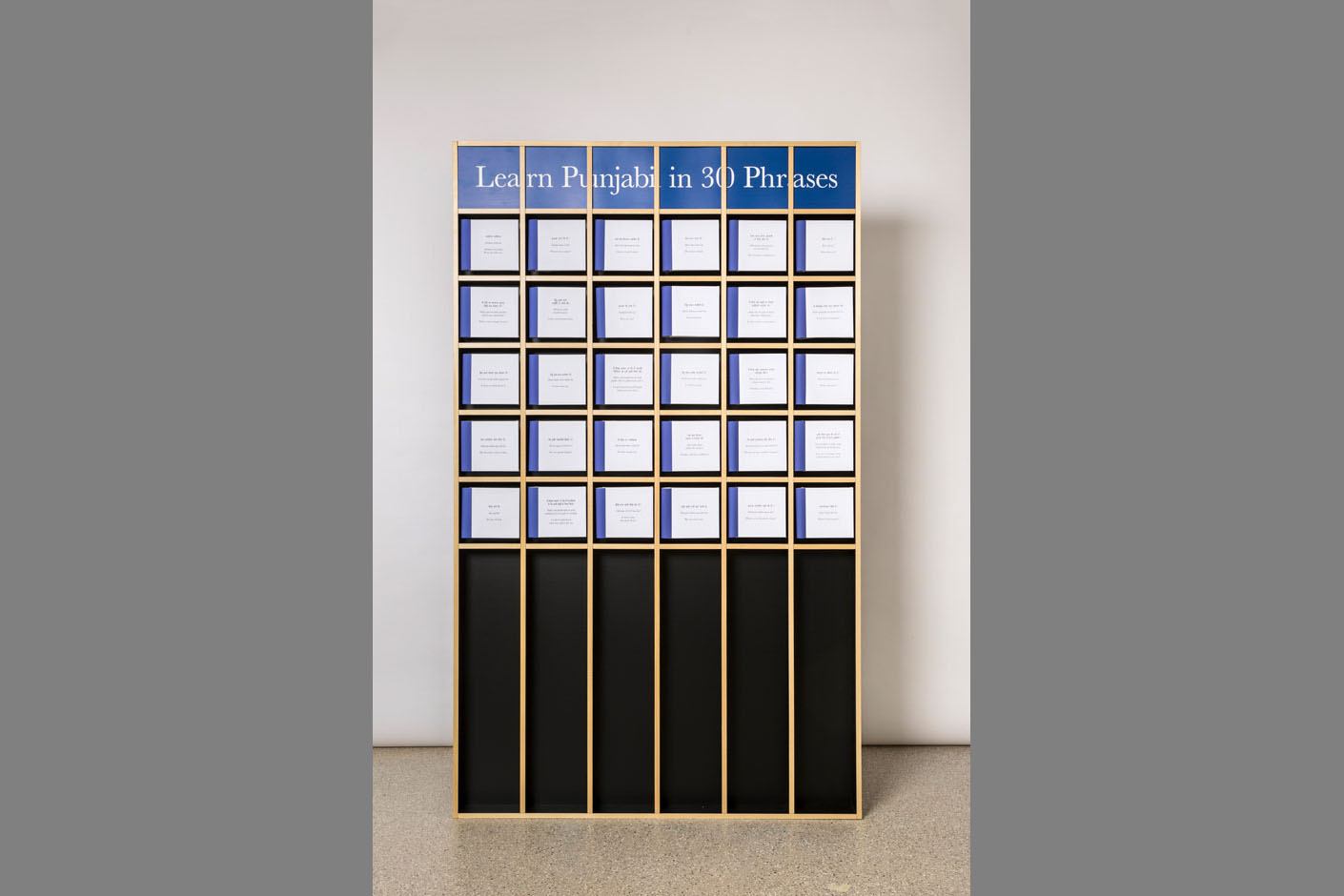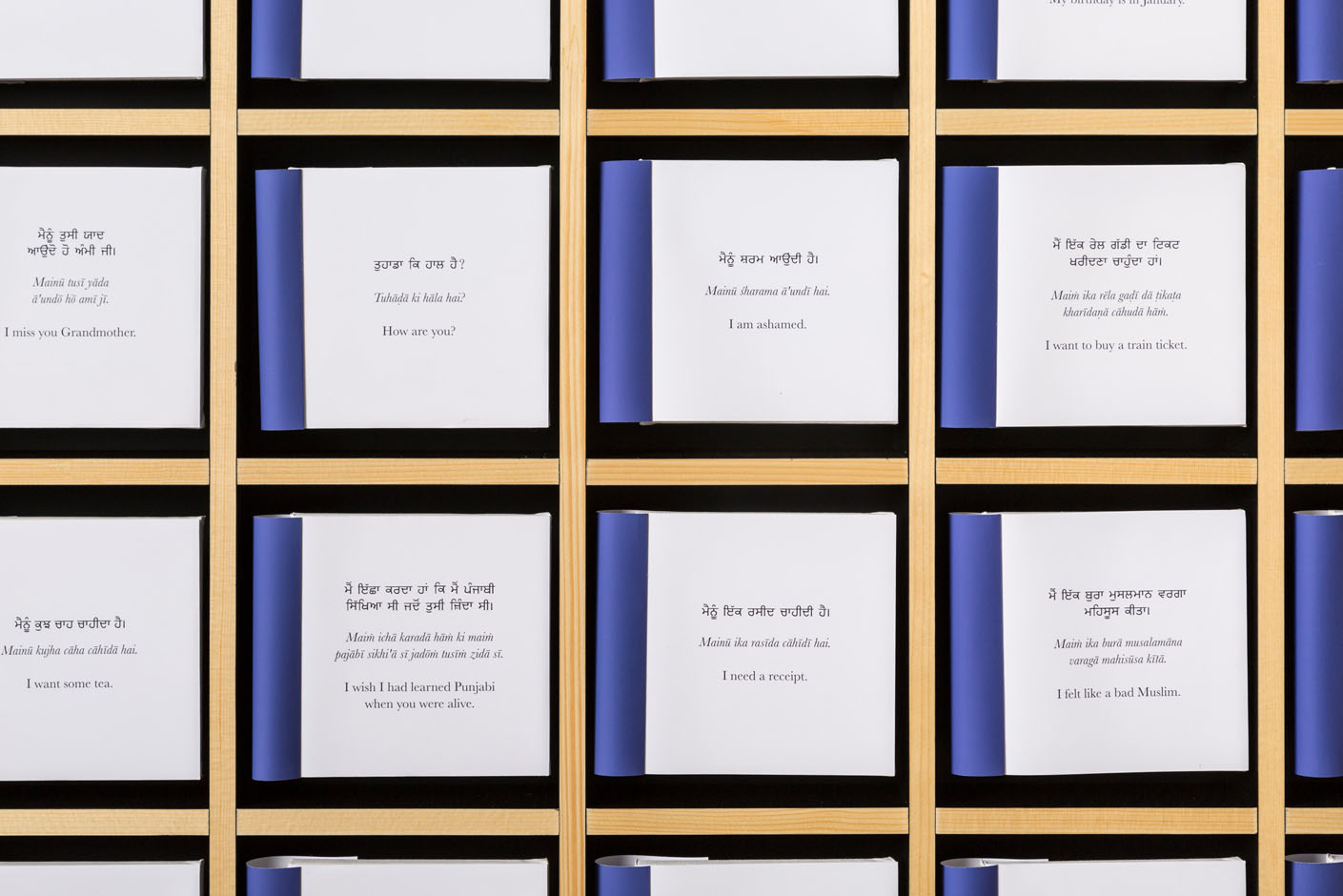Artist
Sarah Maple
Much of Sarah Maple’s work focuses on her hybrid upbringing. Her mother came from Punjab in India, her family having moved to the UK after the partition of India in 1947. Her mother’s side of the family speaks Punjabi, and though Maple grew up around the language, she never learned to speak it herself. Her grandmother, in turn, never learned English, and while the two were very close, they barely spoke a word to each other.
Maple describes having felt, throughout her life, shame at her inability to speak Punjabi and at her perceived inability to connect with the wider Muslim community. She would go to family gatherings or functions and hide for fear of someone speaking to her. As a child, she rented Punjabi tapes from the library and would listen to them in secret late at night.
Now, she has started taking classes and practicing speaking. Taking these classes opened her eyes to the fact that her experience was far from unique: many of the others in her class were also attempting to reconnect with their heritage by learning Punjabi. This realization led her to think more about how second-generation immigrants in the UK connect with their culture through language – or fail to do so.
Sarah Maple (1985) is known for her bold, witty, and occasionally controversial practice that challenges notions of identity, religion, feminism, violence and freedom of expression. Much of Maple’s inspiration originates from her mixed religious and cultural upbringing and she often employ self-portraiture, alongside her guerrilla-style performances, as a vehicle for her narrative. She has had recent solo exhibitions at the Untitled Space (New York), 2019; New Art Exchange (Nottingham, UK), 2017; and the Cob Gallery (London), 2015. She was awarded the New Sensation Art Prize in 2007 and was recently commissioned new work by the Baltic (Newcastle-Upon-Tyne, UK), Soho House (London) and Sky Arts.




























